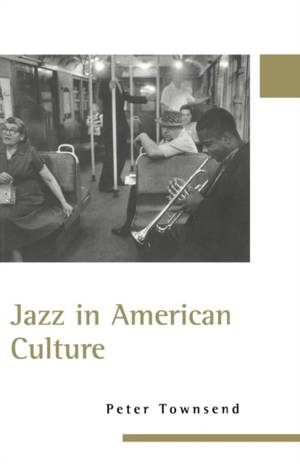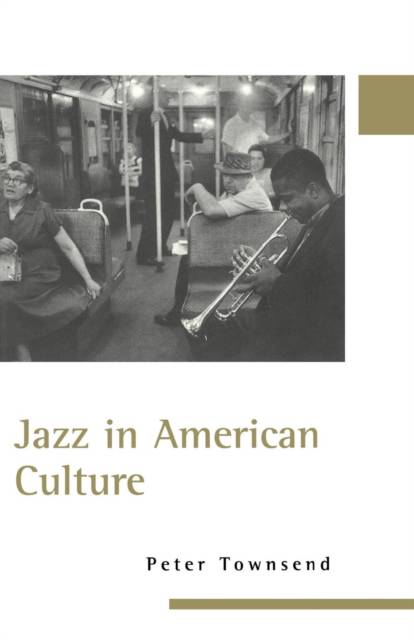
- Retrait gratuit dans votre magasin Club
- 7.000.000 titres dans notre catalogue
- Payer en toute sécurité
- Toujours un magasin près de chez vous
- Retrait gratuit dans votre magasin Club
- 7.000.0000 titres dans notre catalogue
- Payer en toute sécurité
- Toujours un magasin près de chez vous
Description
The family of musical styles known as jazz came into being around 1900 as several popular black musical idioms coalesced. This free-flowing, spontaneous music based in improvisation emerged primarily from ragtime and the blues. But jazz did not remain solely in the domain of American music, for very quickly it swept through virtually all of the national culture as fiction, poetry, film, photography, painting, and classical music came under its spell. If it's art that expresses a nation's essence best, then jazz set America's tempo and afforded an artistic pattern for modernism.
In this book for the nonspecialist Peter Townsend shows how during an entire century jazz has appeared in a wide diversity of times and places and in many different cultural settings.
He reveals how jazz surfaced early in America's movies (The Jazz Singer, Strike Up the Band, Orchestra Wives, Blues in the Night) and how it became an aesthetic model serious composers (George Gershwin, Aaron Copland) did not miss. Jazz has punctuated literary fiction (Ralph Ellison, Eudora Welty, James Baldwin, John Clellon Holmes, Jack Kerouac, Toni Morrison) and American poetry (William Carlos Williams, Carl Sandburg, Langston Hughes, Percy Johnson). Jazz influenced painting (Jackson Pollock, Romare Bearden, Stuart Davis, Archibald Motley, and Jimmy Ernst), and several photographers have devoted their careers to documenting jazz performers and their music scene (William Claxton, William Gottlieb, Roy De Carava, Carol Reiff).
Townsend probes the deep-rooted mythology that holds jazz as indefinable, unteachable, and instinctive with blacks but tough for whites and that its birthplace was New Orleans brothels, that its musicians live tragic lives, and that jazz is dominated by males and despises whiffs of the mainstream.
As modernism swayed to the tempos of jazz and adapted to its modes, the once clearly defined lines of demarcation faded and jazz became well established as one of the great musical cultures of the world.
Spécifications
Parties prenantes
- Auteur(s) :
- Editeur:
Contenu
- Nombre de pages :
- 193
- Langue:
- Anglais
Caractéristiques
- EAN:
- 9781578063246
- Date de parution :
- 01-08-00
- Format:
- Livre broché
- Format numérique:
- Trade paperback (VS)
- Dimensions :
- 138 mm x 217 mm
- Poids :
- 317 g

Les avis
Nous publions uniquement les avis qui respectent les conditions requises. Consultez nos conditions pour les avis.






